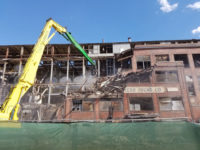

Water industry veteran David Sherman had been working in the water sector for close to 40 years when the new Indianapolis mayor, Greg Ballard, asked him to come on board in 2008 to be the new director of public works for the city. The mayor quickly realized that Sherman was the perfect person to take a hard look at the city's consent-decree program for combined sewer overflows, which was running significantly over budget.
Sherman "is unique in [that] he understands the technical aspects—the engineering aspects of water/wastewater and so many other things—but he also … knows the legal aspects and the financial aspect of [overseeing a public-works program]," says Ballard.
Sherman worked with a team of engineering and consulting firms to rethink the consent decree from top to bottom, taking what he calls a "holistic approach" that combined value engineering with an openness to new ideas. Sherman and his team were able to shave $740 million from the city's combined sewer overflows and wastewater programs and several years off the life of the consent decree. Sherman took the lead in successfully renegotiating the terms of the settlement with the Environmental Protection Agency and the U.S. Dept. of Justice in 2011.
 |
| SHERMAN |
Now, Indianapolis is a model for other cities in renegotiating consent decrees, Ballard says. Cities such as Baltimore, Kansas City, Cincinnati and Washington, D.C., among others, have sought his expertise. "He's such a good guy—he's so creative while being so technical at the same time. That's why cities seek him out all the time. And he's willing to help them," Ballard says. "It's just not Indianapolis' benefit—I like to think that the nation has really benefited," Ballard says.



Post a comment to this article
Report Abusive Comment